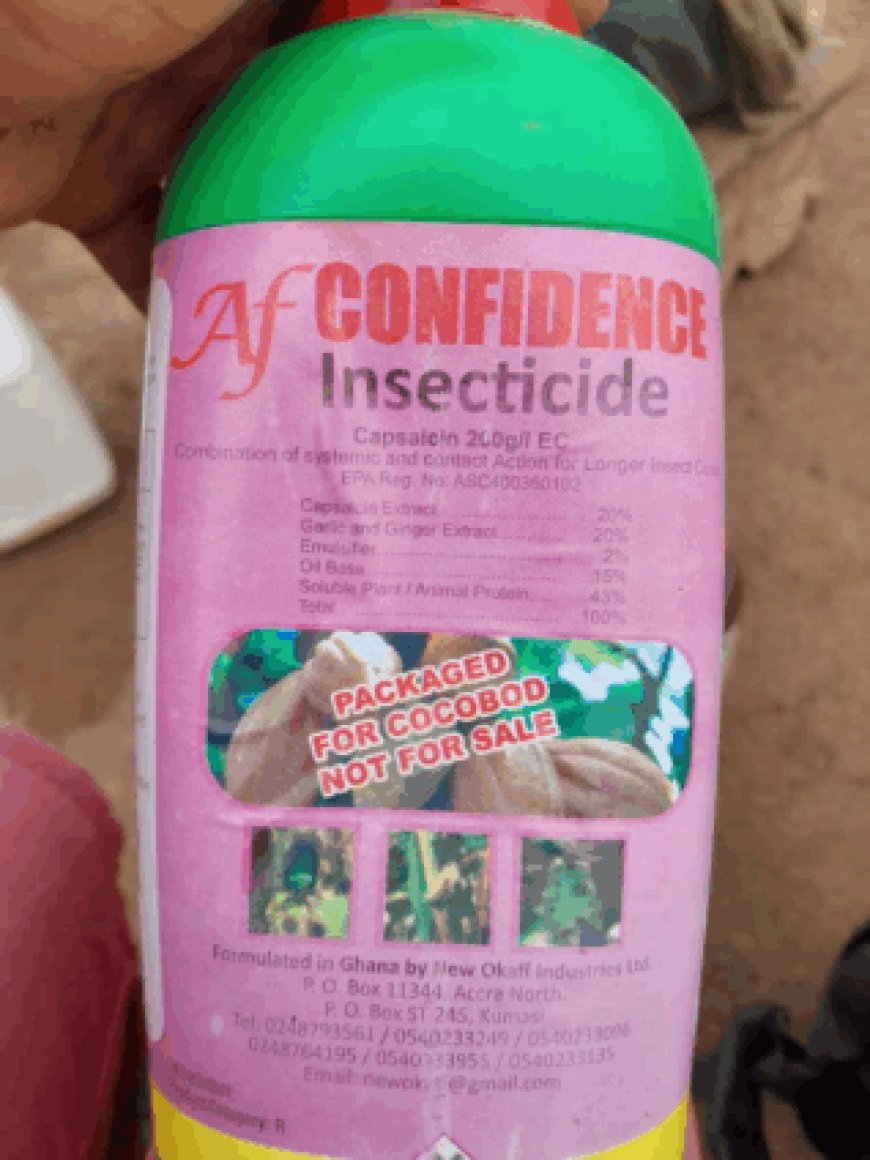JoyNews Investigates: EU‑Banned Agrochemicals Flood Ghana’s Cocoa Farms Amid Smuggling and Health Risks
Despite bans in the EU, hazardous agrochemicals continue to infiltrate Ghana—especially cocoa-growing regions—via smuggling, weak regulation, and counterfeit supply. Investigative findings reveal serious threats to farmers’ health, environmental integrity, and food safety, while regulatory agencies and civil society push for stronger controls and viable alternatives.

Accra, July 24, 2025 — An investigation spearheaded by JoyNews uncovers the alarming influx of agrochemicals banned in the European Union into Ghana’s cocoa sector. These toxic substances are being smuggled in, frequently counterfeited or unapproved by Ghana’s regulatory agencies, yet widely used by farmers across cocoa-growing regions.
EU-Banned Hazardous Chemicals Flow into Ghana
Highly hazardous pesticides—such as chlorpyrifos, imidacloprid, thiamethoxam, fipronil, and paraquat—remain in circulation among Ghanaian cocoa farmers despite being banned in the EU due to their links to cancer, environmental damage, and biodiversity loss . Reports show that paraquat—prohibited in Europe since 2007—is used in Ghana’s rubber and cocoa farms as late as recent years, funded through European financial institutions with lax oversight
Smuggling and Weak Enforcement Fuel the Problem
Border communities, especially around the Ghana–Côte d’Ivoire line, serve as smuggling conduits. The Environmental Protection Agency (EPA) confirms that unapproved chemicals enter the market through informal routes, compounding a regulatory vacuum and public health risk . Civil society groups warn that the incomplete enforcement of Ghana’s pesticide approval system allows banned substances to proliferate among farmers, who often lack training, access to approved alternatives, or resources to adopt safer practices
Health and Environmental Consequences
Prolonged use of these chemicals has been linked to contaminated soils, poisoned water bodies, 1. Though some residues measured in cocoa beans fall within EU limits, detection of persistent compounds like gamma‑HCH (lindane) indicates past or illicit usage despite existing bans
Stakeholders Demand Urgent Reform
At a September 2023 conference in Accra, conservation groups, academics, farmers, and policy-makers underlined the need for urgent reform. Recommendations include:
-
Phasing out unapproved pesticides, especially highly hazardous ones
-
Strengthening Ghana’s approval, monitoring, and enforcement systems
-
Empowering border control and security services to intercept illegal imports
-
Enhancing public education, medical monitoring, and training for farmers and agro-input dealers
-
Promoting integrated pest management, biopesticides, and agroecological pest control alternatives
Why It Matters
-
Public Health Threat: Chronic exposure to banned pesticides places Ghanaian farmers, communities, and consumers at risk.
-
Food Safety and Trade: Ghana’s standing as a premium cocoa exporter could be jeopardized if EU standards detect unsafe residues.
-
Environmental Sustainability: Continued pesticide misuse undermines biodiversity, soil health, and water quality.
-
Regulatory Integrity: The paradox of exporting chemicals banned at home erodes trust in both European suppliers and Ghanaian oversight.
Conclusion & Calls to Action
This investigation lays bare a troubling “double standard”: while European authorities ban certain chemicals domestically, those same agents continue to find markets in Ghana. To end this environmental dumping, Ghana must tighten regulatory frameworks, boost border enforcement, and empower farmers with safer, sustainable alternatives. The government, COCOBOD, the EPA, and civil society all have critical roles to play in securing Ghana’s cocoa sector and protecting public health.
What's Your Reaction?


















































































